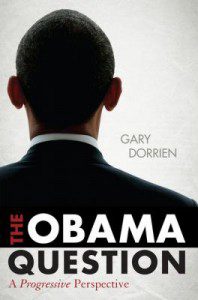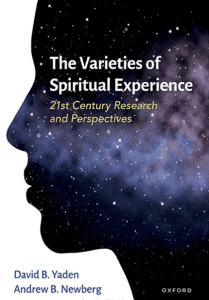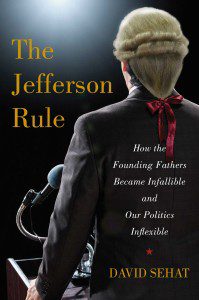WE THE PEOPLES OF THE UNITED NATIONS DETERMINED to save succeeding generations from the scourge of war, which twice in our lifetime has brought untold sorrow to mankind, and to reaffirm faith in fundamental human rights, in the dignity and worth of the human person, in the equal rights of men and women and of nations large and small, and to establish conditions under which justice and respect for the obligations arising from treaties and other sources of international law can be maintained, and to promote social progress and better standards of life in larger freedom, AND FOR THESE ENDS to practice tolerance and live together in peace with one another as good neighbors, and to unite our strength to maintain international peace and security, and to ensure, by the acceptance of principles and the institution of methods, that armed force shall not be used, save in the common interest, and to employ international machinery for the promotion of the economic and social advancement of all peoples, HAVE RESOLVED TO COMBINE OUR EFFORTS TO ACCOMPLISH THESE AIMS.
—Preamble to the Charter of the United Nations (October 24, 1945)
This post is the second in a three-part series leading up to “Election 2012.” Last week I posted on “Mitt Romney, Mormonism, and Book of Mormon: The Musical.” This week the focus is on President Obama, and in two weeks I will be posting about the Fifth Principle of Unitarian Universalism: “The use of the democratic process within our congregations and in society at large.”
To make a general note here at the beginning about negotiating the intersection between religion and public life, Martin Luther King, Jr. said in his book The Strength to Love that:
The church must be reminded that it is not the master or the servant of the state, but rather the conscience of the state. It must be the guide and the critic of the state, and never its tool. If the church does not recapture its prophetic zeal, it will become an irrelevant social club without moral or spiritual authority.
And that quote is one way of describing one of my central goals for this post: to take a step back, near the end of President Obama’s  first term in office, to reflect on his presidency so far from a progressive point of view. I want toexplore what it might look like to reflect on President Obama’s record from the perspective what MLK calls “prophetic zeal,” of a house of worship as the “conscience of the state,” as “the guide and the critic of the state.”
first term in office, to reflect on his presidency so far from a progressive point of view. I want toexplore what it might look like to reflect on President Obama’s record from the perspective what MLK calls “prophetic zeal,” of a house of worship as the “conscience of the state,” as “the guide and the critic of the state.”
I also intentionally referred to President Obama’s first term because I’m willing to go on the record as saying that I think that President Obama will win a second term. That position is irrespective of my opinion of whom I think should win. My prediction is based mostly on statistician Nate Silver’s “Five Thirty Eight” blog for The New York Times, which I recommend for helping sort out the incessant flurry of electoral polls, not all of which are created equal. As of yesterday, Silver’s prediction was that President Obama would win 288.6 electoral votes, out of the 270 needed to win.
Of course, anything could happen in the next two weeks or so before Election Day, but the importance of reflecting on President Obama’s first term is heightened by the current statistical likelihood of a two-term Obama presidency. At the same time, as will soon become clear, I have no intention of being a shill for the Obama campaign. Indeed, I can say honestly that I’ve never fully “drunk the Obama Kool-Aid,” so to speak. Although I have studied all his major speeches closely and followed his political calculations with interest, I have not read either of his bestselling memoirs.
All that to say, I am familiar with much of President Obama’s story, and find him to be both a fascinating and frustrating figure. On the eve of a potential second term as president, it can be easy to forget just how stunning Barack Obama’s rise has been. In July 2004, when he delivered an electric keynote address at the Democrat National Convention in Boston, he was only a state senator, representing the 13th District in the Illinois Senate. He didn’t win his U.S. Senate seat until November of that year. After his speech at the DNC, speculation began almost immediately that he might run for President as early as 2012, but we now know that a mere four years from that U.S. Senate race, he was elected President of the United States in 2008.
Less than ten years after September 11, 2001, which stoked Anti-Arab and Islamophobic sentiments in the U.S., we elected “Barack Hussein Obama II” as the 44th President of the United States. And less than 150 years after the end of a brutal Civil War over slavery, “The same nation that elected twelve slavemasters to its presidency” elected its first African-American president along with a First Lady, who is the direct descendent of American slaves.
That sweep of events is breathtaking, but to isolate only one aspect, it equally important to point out how far we have to go to continue to dismantle racism in this county even as we celebrate how much progress has been made. With Barack Obama in the Oval Office, there are currently no African-Americans serving in the U.S. Senate — none — and there have only been six African-American senators in all of U.S. history. As a point of comparison, census records show that in 2011, approximately 13.1% of the U.S. popular is black. Yet zero U.S. senators are black. That’s one of many statistics to keep in mind when the argument is made that racism is over now that we have elected a biracial President.
And before I transition into a progressive critique of some of President Obama’s decisions, it is relatedly important to name that he has been confronted with an unprecedented level of obstructionism from the opposition party. That is not simply the perception of some pundits. Senate minority leader Mitch McConnell has said publicly and adamantly that, “The single most important thing we want to achieve is for President Obama to be a one-term president.”
From the perspective of progressives on the left-side of the political spectrum, this Republican obstinacy is particularly frustrating when they consider how much President Obama conceded to conservatives from the outset. For his economic advisors, President Obama chose not someone with a “track record of giving priority to the poor and unemployed.” Instead, he chose two people with close ties to Wall Street: Timothy Geithner for Treasury Secretary and Larry Summers as Director of the White House’s National Economic Council.
Similarly, for his foreign policy advisors, he stayed the course for Secretary of Defense with Robert Gates, who in 2006 was George W. Bush’s choice to replace Donald Rumsfeld. President Obama also chose James L. Jones as his National Security Advisor, who besides being a former NATO commander is also a close friend of Obama’s rival for the presidency John McCain. President Obama also nominated Jon Huntsman, a former Republican Governor of Utah (and eventual failed seeker of the 2012 Republican presidential nomination) as his U.S. Ambassador to China. As progressive theologian Gary Dorrien has said, “This was not ‘change you can believe in.’ This was ‘don’t worry about Obama’s inexperience, because old hands will be on deck….’”
Given a different political climate in this country, these and many other conciliatory gestures from a sitting Democratic president might have been seen as a good faith effort to fulfill the soaring rhetoric in speeches like his 2004 DNC keynote that we aren’t truly divided into “Red States” and “Blue States,” but are instead one diverse “United States of America.” But President Obama’s efforts at bipartisanship have tragically been met with an almost complete refusal to cooperate on the right and a resulting sense of betrayal on the left.
For what it is worth, I personally think that President Obama is right that we aren’t as divided a country as we sometimes seem — that, “We coach little league in the blue states and, yes, we’ve got some gay friends in the red states. There are patriots who opposed the war in Iraq, and there are patriots who supported the war in Iraq.” I would add that there is an increasingly outspoken segment of conservative Unitarian Universalists. And I would agree with The Rev. Nancy McDonald-Ladd, minister of the Bull Run UUs in Manassas, VA from a workshop at this past year’s UU General Assembly on the viewpoints of politically conservative and moderate UUs that to assume or desire that all UUs are liberal would be “mirroring the exact political partisanship and brokenness present in the world outside our doors, and are we not called—as faithful, courageous people—to something higher than mirroring the worst of the world around us?” I’ll say more in my “Democracy” post in two weeks about a potential way out of this impasse between conservatives and liberals. But we also need to be honest that too often in the past four years, the “politics of hope” have been drowned by the “politics of cynicism.”
Returning to a progressive perspective that seeks to be the “conscience of the state,” one of President Obama’s worst decisions was arguably doubling-down on the War in Afghanistan. A few weeks ago, we passed the 11thAnniversary of the U.S. invading Afghanistan. Far from being a “necessary war” in contrast to George W. Bush’s “unnecessary” invasion of Iraq, the situation on the ground in Afghanistan has for many years seemed to many progressives to be a consummate example of what economists call a Sunk Cost Fallacy: we seem unable to pull out because so much blood and treasure has already been spent. But that’s precisely the sunk cost fallacy: a “surge” of further blood and treasure doesn’t always redeem the day; it sometimes just tragically spends more blood and treasure. As it well known, here is a history of failed invasions of Afghanistan, a present-day deep corruption in the Afghan government, and recent disheartening headlines of increasing numbers of U.S. soldiers being shot by supposed Afghan allies.
Relatedly, about a week ago, the public editor of The New York Times wrote an important article about the rising use of drone strikes in Afghanistan. She noted that, “The Bureau of Investigative Journalism in Britain has estimated that, in the first three years after President Obama took office, between 282 and 535 civilians were credibly reported killed by drone strikes — including more than 60 children.” But so far the U.S. government has blocked the Freedom of Information requested that The Times and the American Civil Liberties Union have filed about the drone program. She also admits that “The Times has not been without fault.” Since a groundbreaking New York Times article in May about President Obama’s role overseeing a secret terrorist “kill list,” The Times’ “reporting has not aggressively challenged the administration’s description of those killed as ‘militants’ — itself an undefined term.”
As I have sought to reflect on President Obama’s first term from a progressive perspective, perhaps the most important point that has stood out to me is that — outside some occasionally soaring rhetoric about hope and change — neither President Obama nor candidate Obama has ever been particularly progressive, leftist, or radical. Although Obama famously said, regarding George W. Bush’s decision to invade Iraq, that, “I don’t oppose all wars. What I am opposed to is a dumb war,” at that time, he was merely a state senator from Illinois speaking in October 2002, almost two years before he would deliver that fateful keynote address at the Democratic National Convention.
Many of you likely remember the absurd arrest of renown Harvard professor Henry Louis Gates in 2009 for breaking into his own home in Cambridge, Massachusetts when his door was jammed. President Obama helped broker the peace by inviting both Gates and the arresting officer to have a beer together with him at the White House. Gates has previously said about the President that, “Obama’s only radical belief is that he can be elected president.”
We sometimes forget, for example, that candidate Obama did not promise to withdraw our troops from Afghanistan; he promised a troop increase. I’m deeply grateful for all those who serve in our armed forces, but I also agree with Martin Luther King, Jr. about the unintended consequences that often flow from violence. King wrote that,
The ultimate weakness of violence is that it is a descending spiral, begetting the very thing it seeks to destroy. Instead of diminishing evil, it multiplies it… Through violence you may murder the hater, but you do not murder hate. In fact, violence merely increases hate…. Returning violence for violence multiplies violence, adding deeper darkness to a night already devoid of stars. Darkness cannot drive out hate; only love can do that.
However, as theologian Gary Dorrien has said, when voting for Barack Obama, “too many progressives and others imagined they were electing Martin Luther King, Jr., which set them up for a mighty disillusionment.” But we did not elect the radical social prophet Martin Luther King, Jr. to be president. We elected the pragmatic Barack Hussein Obama — that “skinny kid with a funny name.”
On one hand, I’m resistant to the idea that it there is no difference between electing a Republican or a Democrat president, which is not to say that I am by any means satisfied with the current state of our two-party system. At the same time, I’m grateful in the last four years for the significant strides that have been made in health care reform, the ending of “Don’t Ask Don’t Tell” in the military, and the important gestures toward internationalism such as Obama’s speech to the Muslim world in Cairo. On the other hand, as we near the 50th Anniversary of the Unitarian Universalist United Nations Office, I’m reminded of just how far short the Obama presidency has fallen from Unitarian Universalism’s sixth principle: “The goal of world community with peace, liberty and justice for all.” I’m reminded of the irony that President Obama was awarded the Nobel Peace Prize, while serving as the Commander in Chief of two wars. Apparently the Norwegians also forgot that we didn’t elect MLK president.
For a different worldview, I’m reminded of the recent memorial service of a member of our congregation, who dedicated his life to organizations like the Peace Corps to make this world a better place for all humans. During the benediction of that memorial service, I quoted philosopher James Hinton that, “The only way to abolish war is to make peace heroic.” I am deeply grateful to all many veterans of the U.S. armed forces who have sacrificed so much for our freedom. At the same time, we need to be reminded of how much honor and courage there is in nonviolent activism.
From a progressive perspective, there is much to criticize about President Obama’s first time, but then I remember that when candidate Obama took to the stage in Denver on the last night of the 2008 Democratic National Convention, it was the forty-fifth anniversary of Martin Luther King, Jr.’s March on Washington. Barack Obama may fall short of MLK’s social activism, but an African-American president in the Oval Office is nevertheless a powerful fulfillment, if only partially, of MLK’s dream. The only more emotional moment of that campaign that I can think of is when President-elect Obama took to the stage in Grant Park on November 4, 2008. He said:
Tonight we proved once more that the true strength of our nation comes not from the might of our arms or the scale of our wealth, but from the enduring power of our ideals: democracy, liberty, opportunity and unyielding hope. That’s the true genius of America: that America can change. Our union can be perfected. What we’ve already achieved gives us hope for what we can and must achieve tomorrow.
When I hear Obama’s rhetoric, my first response is often, “May it be so.” But our challenge is to never abdicate the work of social justice to elected officials. The Fifth UU Principle is not merely to the use of the democratic process within our congregations and in society at large”; it is also to “The right of conscience.” We must allow our conscience to guide us no matter who is in office.
How we vote matters. But we only vote, at most, around once a year, and Gandhi’s slogan to “Be the change you want to see in the world” can seem cliche sometimes. But the last four years have made it clear for many that casting a vote is not enough to create “change we can believe in.” Even as we must continue to petition our elected officials to create social change, we have the choice each day to choose wisdom. We have the choice each day to choose kindness in how we treat each other. We have the choice each day to choose compassion, to choose love. May it be so not matter who is elected on this or any Election Day.
Notes
1 The subtitle is an allusion to the fact that I was inspired to write this post after reading theological historian and social ethicist Gary Dorrien’s book The Obama Question: A Progressive Perspective. Dorrien has also written the magisterial, three-volume The Making of American Liberal Theology.
2 The full UN Charter is available online at https://www.un.org/en/documents/charter/preamble.shtml.
3 The Unitarian Universalist Association’s “The Real Rules: Congregations and the IRS Guidelines On Advocacy, Lobbying, and Elections” is available at http://www.uua.org/action/realrules/index.shtml.
4 Martin Luther King, Jr., The Strength to Love, 59.
5 For Nate Silver’s blog, visit http://fivethirtyeight.blogs.nytimes.com. The blog’s title 538 comes from the total number of electors in the United States electoral college. Silver honed his skills in studying baseball statistics, but has risen to national prominence for his prowess synthesizing and interpreting huge amounts of political data.
6 Writing on August 1, 2004 in the wake of the DNC Convention, columnist Clarence Page wrote in the Chicago Tribune (“Obama’s Drama and Our Dreams”) the following:
A superstar is born. It is difficult for many of us to contain our enthusiasm for Barack Obama, yet we must try. We owe that to him. We should not reward his blockbuster performance last week at the Democratic National Convention by loading his shoulders with the fate of the nation. Not yet, anyway. That can wait, perhaps until, say, his 2012 presidential campaign? For now, Illinois’ self-described “skinny guy from the South Side of Chicago with the funny name” offers an inspiring glimpse of what America’s next generation of black leadership could look like — a leadership that is not for blacks only.
The full article is available at http://articles.chicagotribune.com/2004-08-01/news/0408010236_1_masters-and-negative-ad-enthusiasm-for-barack-obama-blue-states.
On his way to the top, in November 2000, State Senator Obama famously failed to defeat the incumbent for the First Congressional District of the U.S. House of Representatives. But in 2004, there was an open Senate seat with no incumbent. For more on the importance of circumstances outside of an individual’s control shape an election and presidency, see Gary Gutting, “How Not to Choose a President,” The New York Times (October 17, 2012), available at http://opinionator.blogs.nytimes.com/2012/10/17/how-not-to-choose-a-president/.
7 “elected twelve slavemasters to its presidency” — Dorrien, The Obama Question, 1.
8 According the U.S. Senate website (https://www.senate.gov/pagelayout/history/h_multi_sections_and_teasers/Photo_Exhibit_African_American_Senators.htm),
To date, six African Americans have served in the United States Senate. In 1870, Hiram Revels of Mississippi became the first African American senator. Five years later, Blanche K. Bruce of Mississippi took the oath of office. It would be nearly another century, 1967, before Edward Brooke of Massachusetts followed in their historic footsteps. Carol Moseley Braun broke new ground in 1993 becoming the first African American female to serve as U.S. senator. In 2005, Barack Obama of Illinois became the fifth African American to serve and third to be popularly elected. Upon Obama’s resignation to become president, Roland Burris was appointed to fill the vacancy, becoming the sixth African American senator and the third to occupy the same Illinois Senate seat.
Burris’ appointed term ended on November 29, 2010.
9 For more on the census data, see http://quickfacts.census.gov/qfd/states/00000.html. Persons reporting two or more races were 2.3% of the U.S. populate in 2011.
10 The ongoing financial crisis also deeply shaped President Obama’s presidency before it had even begun. See Dorrien, The Obama Question, 73-100.
11 Mitch McConnell, interview with Major Garrett, National Journal (October 25, 2010).
12 “This was not ‘change you can believe in.” — Dorrien, The Obama Question, 130.
13 For the full text of President Obama’s 2004 Keynote, visit https://en.wikisource.org/wiki/2004_Democratic_National_Convention_Keynote_Address.
14 Sonja L. Cohen, “Conservative UUs call for inclusivity” (June 23, 2012), available at http://blogs.uuworld.org/ga/2012/06/23/conservative-uus-call-for-inclusivity.
15 For more on the Sunk Cost Fallacy, see Carl Gregg, “The Upside of Quitting”: Sunk Cost, Opportunity Cost, and the 10th Anniversary of the War in Afghanistan (October 7, 2011), available at http://www.patheos.com/blogs/carlgregg/2011/10/the-upside-of-quitting-sunk-cost-opportunity-cost-and-the-10th-anniversary-of-the-war-in-afghanistan/.
16 CBS News, “The rise of (un)friendly fire in Afghanistan” (January 20, 2012), available at http://www.cbsnews.com/8301-503543_162-57362641-503543/the-rise-of-un-friendly-fire-in-afghanistan/.
17 Jo Becker and Scott Shane, “Secret ‘Kill List’ Proves a Test of Obama’s Principles and Will” (May 29, 2012), available at http://www.nytimes.com/2012/05/29/world/obamas-leadership-in-war-on-al-qaeda.html?pagewanted=all. Margaret Sullivan, The Public Editor of The New York Times, “Questions on Drones, Unanswered Still” (October 13, 2012), available at http://www.nytimes.com/2012/10/14/public-editor/questions-on-drones-unanswered-still.html?_r=2.
18 “Obama’s Afghan Position 2007-2008: A Reminder,” The Daily Kos (November 26, 2009), available at http://www.dailykos.com/story/2009/11/26/808280/-Obama-s-Afghan-Position-2007-2008-A-Reminder.
19 On Barack Obama’s pragmatic temperament, see Tony Jones, “Barack Obama Is an Enneagram Nine – What That Means” (October 17, 2012), available at http://www.patheos.com/blogs/tonyjones/2012/10/17/barack-obama-is-an-enneagram-nine-what-that-means/. See also Tony Jones, “Mitt Romney Is an Enneagram Three – What That Means” (October 15, 2012), available at http://www.patheos.com/blogs/tonyjones/2012/10/15/mitt-romney-is-an-enneagram-three-what-that-means/.
20 James Hinton, Philosophy and Religion: Selections from the Manuscripts of the Late James Hinton, ed. Caroline Haddon, (2nd ed., London: 1884), 267. Qtd in Dewey, Human Nature and Conduct: An Introduction to Social Psychology (New York: 1922), 115.
 Content Director’s Note: This post is a part of our Election Month at Patheos feature. Patheos was designed to present the world’s most compelling conversations on life’s most important questions. Please join the Facebook following for our new News and Politics Channel — and check back throughout the month for more commentary on Election 2012. Please use hashtag #PatheosElection on Twitter.
Content Director’s Note: This post is a part of our Election Month at Patheos feature. Patheos was designed to present the world’s most compelling conversations on life’s most important questions. Please join the Facebook following for our new News and Politics Channel — and check back throughout the month for more commentary on Election 2012. Please use hashtag #PatheosElection on Twitter.
The Rev. Dr. Carl Gregg is a trained spiritual director, a D.Min. graduate of San Francisco Theological Seminary, and the minister of the Unitarian Universalist Congregation of Frederick, Maryland. Follow him on Facebook (facebook.com/carlgregg) and Twitter (@carlgregg).
The views expressed in this blog post are his own and do not necessarily reflect those of the Unitarian Universalist Congregation of Frederick.
Learn more about Unitarian Universalism:
http://www.uua.org/beliefs/principles/index.shtml












